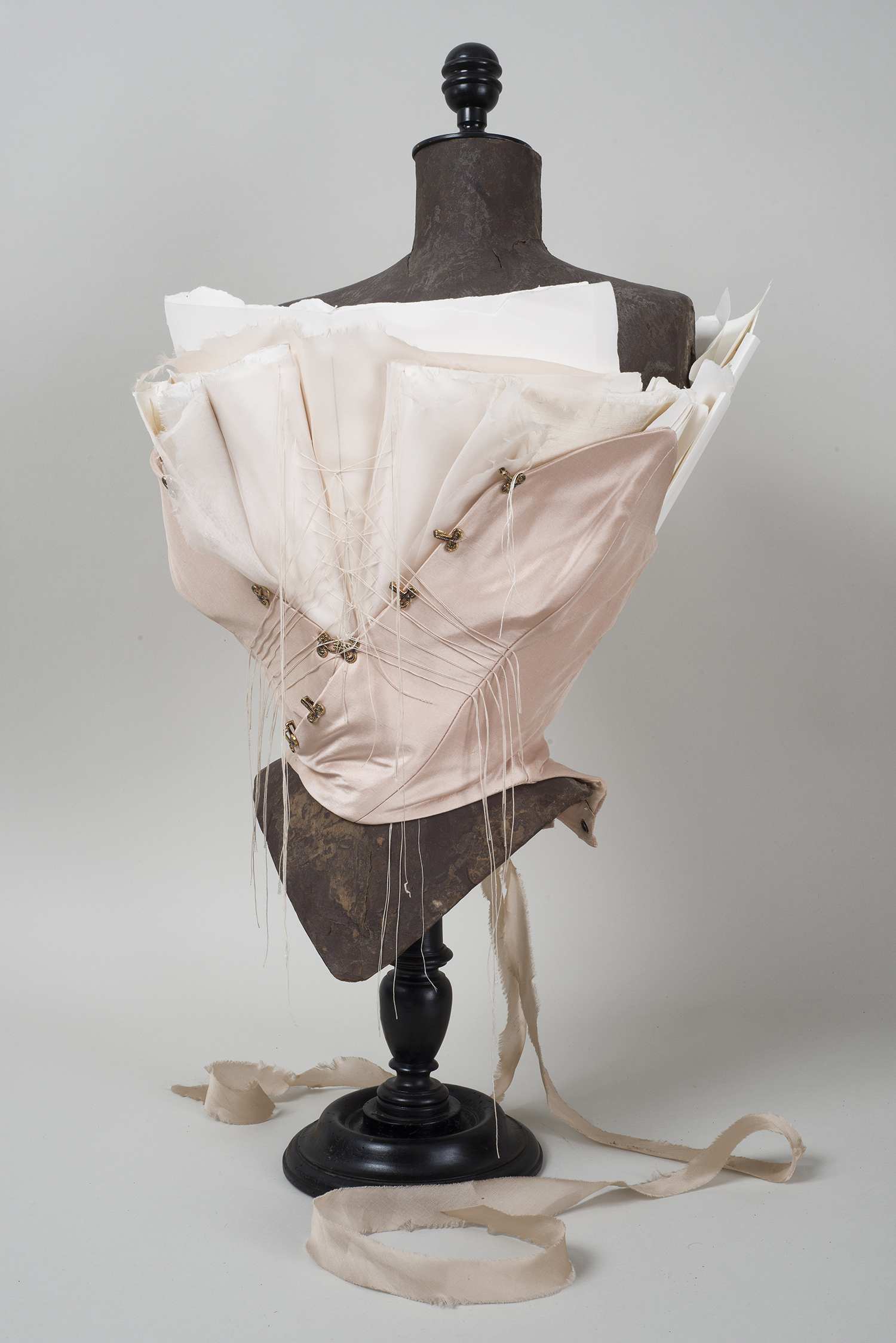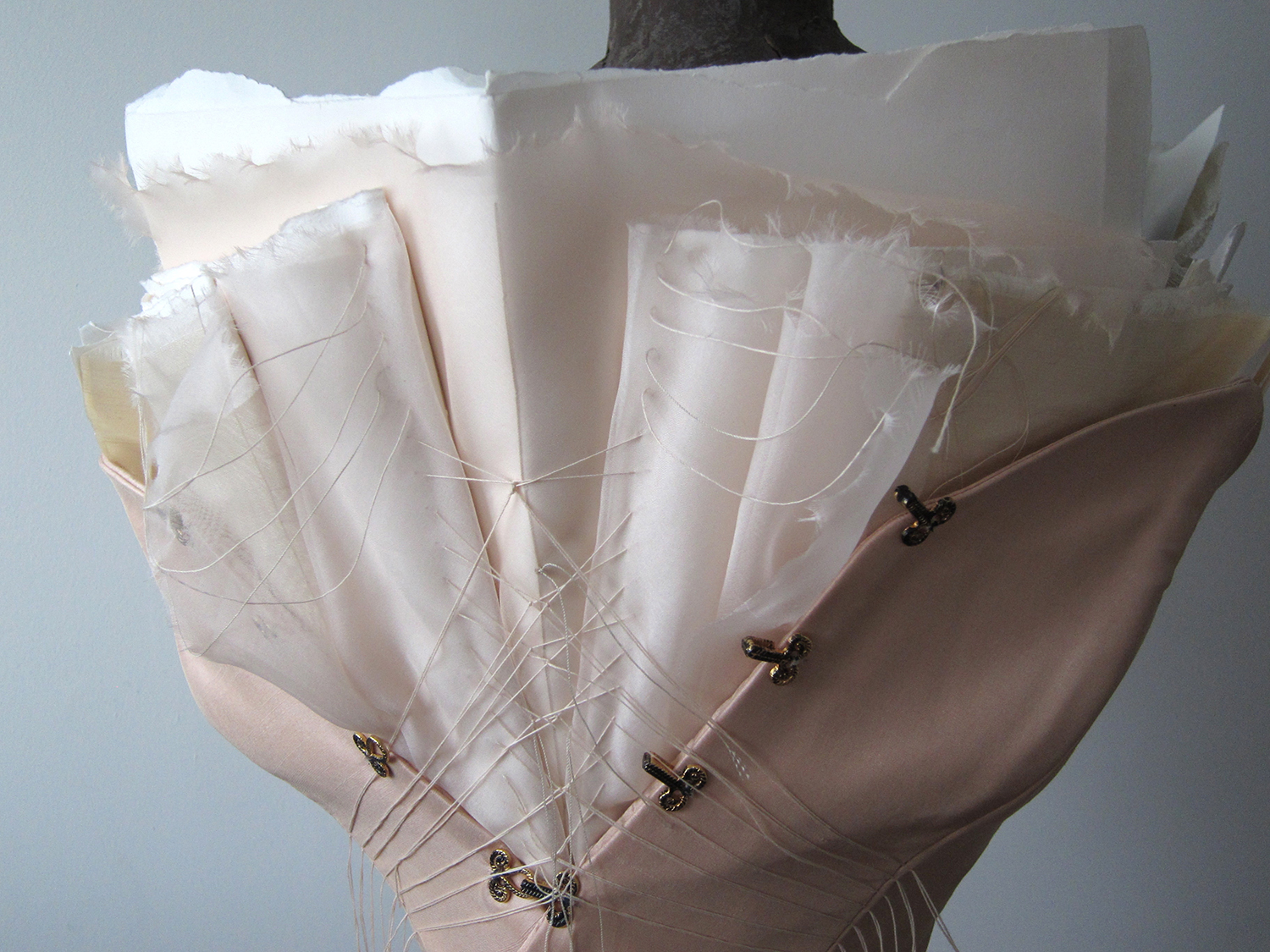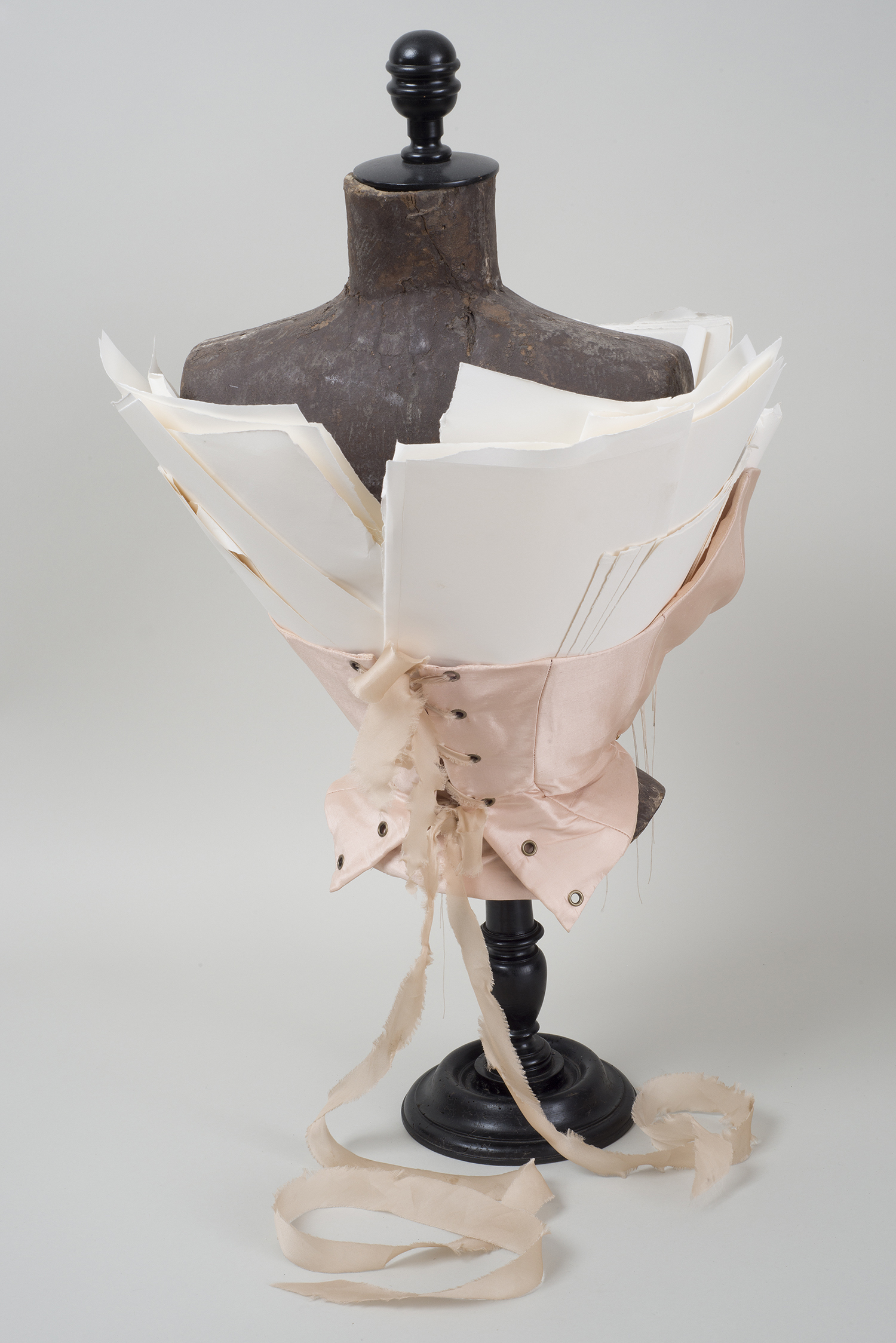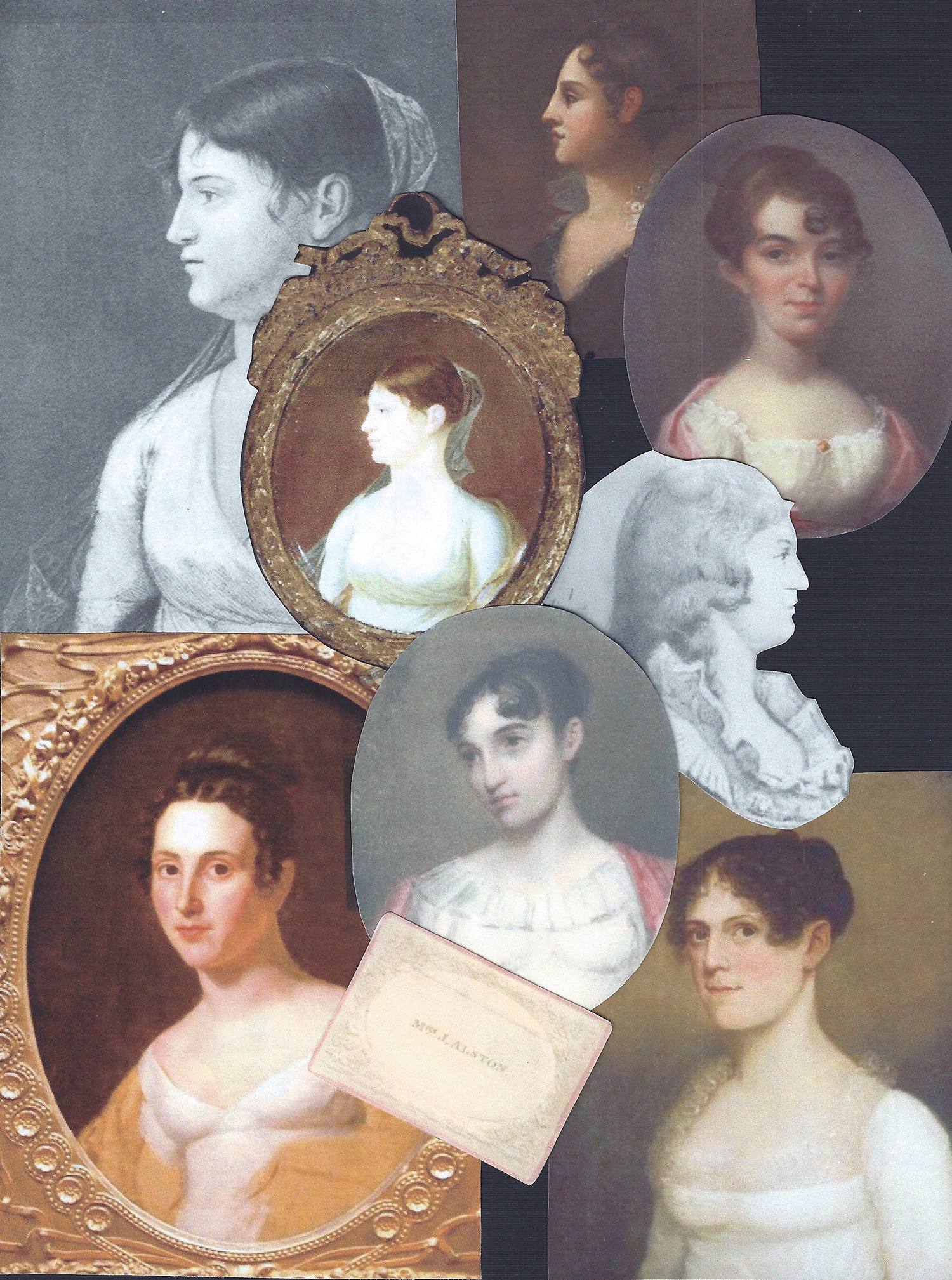THEODOSIA BURR ALSTON (1783 - 1813)
As per her parents’ wishes, Theodosia represents the liberated woman that the American Revolution might have produced. Radical Democtratic Revolutionaries, the Burr’s asserted that the Road to Heaven was open to all alike, exemplifying the Enlightenment’s liberal humanist ideals in an America embodying Romanticism.
Raising their daughter, “to convince the world [of] that [which] neither sex appear to believe – that women have souls,” in contrast to the lack of education of most women raised in subservience, her transcendence of social convention would win her the respect infrequently due women.
Since childhood Theodosia kept a journal, writing of each day’s events and the progress of her lessons for her father’s direction and review. In his admonitions to study harder, Burr corrects her grammar, polishes her manners and refines her grasp of language, literature and history. They would become lifelong correspondents.
“Mr. Burr has introduced me to his daughter, whom he has educated with uncommon care; for she is elegant without ostentation, and learned without pedantry. At the same time that she dances with more grace than any young lady of New York, Miss Theodosia Burr speaks French and Italian with facility, is perfectly conversant with the writers of the Augustan age, and not unacquainted with the language of the father of poetry.” John Dons, 1798, cited in Nancy Isenberg's Fallen Founder.





Silk corset, steel coil boning, signatures of 100% cotton paper stitched in silk
